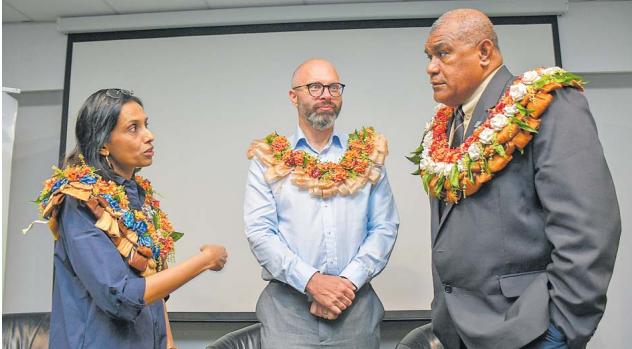FOR the first time, the Fiji Bureau of Statistics (FBoS) is compiling official statistics on climate change, marking a significant step in strengthening the nation’s climate data systems.
To support this effort, FBoS has launched a two-day National Workshop on Advancing Climate Change-Related Statistics, a key milestone in Fiji’s commitment to evidence-based climate action and sustainable development.
Bringing together policymakers, researchers, and advocates, the workshop aims to review Fiji’s progress in climate statistics, improve data quality, and enhance coordination across sectors.
The event also underscores the growing recognition that reliable data is essential for evidence-based decision making on climate resilience and sustainable development.
FBoS chief executive officer Kemueli Naiqama noted the initiative forms part of its ongoing collaboration with the UN Economic and Social Commission for Asia and the Pacific (ESCAP) which began in 2024.
With ESCAP’s support, Fiji is adopting a whole-of-government approach to ensure that climate data reflects realities across the environment, economy, infrastructure, and health.
“Climate change is not abstract issue for us, it’s a lived experience for every Fijian,” Mr Naiqama said.
“High-quality climate statistics allows us to understand what is changing, who is most vulnerable, and how best to respond.”
Country launches climate publications
FIJI has achieved a major step in its climate information agenda with the launch of two groundbreaking publications.
This includes the Climate Change-Related Statistics Release and the Gender- Climate Change Nexus Data Brief.
The Climate Change Statistics Release, first published in August 2025, compiles data on drivers, emissions, impacts, and national responses to climate change.
It represents Fiji’s first coordinated effort to measure and communicate climate trends through official statistics.
In October 2025, the Fiji Bureau of Statistics (FBoS), in partnership with ESCAP and UN Women, followed with the Gender- Climate Data Brief, which highlights how climate change affects women and men differently across Fiji.
The publication reinforces the importance of integrating gender perspectives into climate policies and programs.
“They form a foundation for better coordination between policy and data,” FBoS chief executive officer Kemueli Naiqama said.
Both publications are being reviewed at the national workshop this week to identify data gaps and guide the next phase of Fiji’s climate statistics work through 2028.



